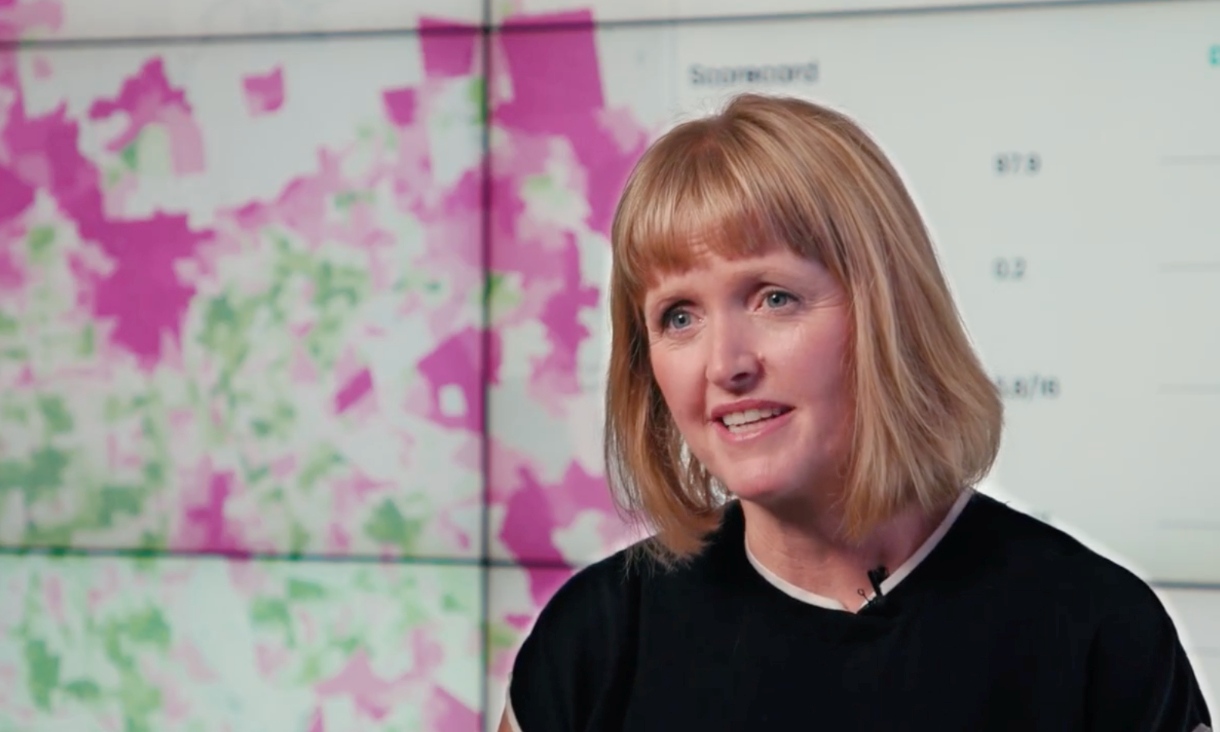RMIT is collaborating with government and industry partners on an innovative data sharing project, which aims to create more sustainable, liveable and healthier communities.
Led by RMIT's Professor Melanie Davern, the Australian Urban Observatory (AUO) is a digital platform, which aggregates detailed insights to drive tangible improvements in the liveability of urban developments.
The AUO uses maps public health data across criteria such as walkability, public transport, social infrastructure and services, employment, food, housing and public open space.
Davern said her and the team from RMIT's Centre for Urban Research are creating a new national resource of liveability indicators needed to identify, measure, monitor and target responses to critical social, economic and environmental challenges.
"Each indicator in the platform has been chosen because it is associated with health outcomes and is connected to government policies," she said.

Professor Melanie Davern in front of Australian Urban Observatory visualisations. Image: RMIT.
Delivering impact through partnerships
Davern said industry partnerships like their ongoing collaboration with Stockland, Australia's largest diversified property group, were crucial to using this data to make a difference.
Justine Felton, Group Social Sustainability Manager at Stockland said the AUO data has helped inform Stockland's approach to creating and measuring social impact in its communities and, importantly, enabled an approach to social impact that was evidence-based.
"This was our whole focus from a social sustainability perspective. We needed to take an 'outside-in' perspective, to better understand the unmet need within our communities, and what role Stockland could play to address that need," she said.
"When looking at all the indicators, we recognise the impact that we have on individuals and communities with the social infrastructure that we provide, and how important it is to get that right."
Evidence from the AUO has been embedded in Stockland's Social Needs Analysis and Social IQ tools, which help Stockland better identify community needs and measure social value.
"Now, more than ever, impartiality and credibility are key in social impact measurement and our partnership with the AUO enables this," Felton said.
"This evidence influences the design across our masterplan communities and helps us deliver on our vision of 'a better place to live'."
The partnership also has ongoing benefit for RMIT, with Stockland providing letters of recommendation to support future grants such as a successful cycling trail research grant.
Other AUO projects
Meanwhile, the AUO is also leading projects to improve city planning and liveability, including developing cycling indicators funded by the Ian Potter Foundation to enhance urban cycling infrastructure nationwide.
Working with partnership with Victorian local governments, the team is also running a project to support municipal public health and wellbeing planning by producing monitoring and evaluation tools.
Research to help improve liability outcomes for older Australians is being done by the AUO team with the Healthy Ageing Discovery Project. It aims to refine neighbourhood designs that support ageing in place, considering socioeconomic factors and personal preferences to enhance liveability for older populations.






